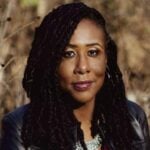“Asking for help can make us vulnerable, but the reward of deepening understanding and connections is worth the risk.”
– Sheila P. Spencer
I remember reading a prayer that simply said, “Lord, help me resist the habit of not asking for the help I need when I need it.” That line has stayed with me.
There was a survey once about the four toughest phrases to say. Can you guess what some of them were? One of the top responses: “I need help.”
In a culture that often idolizes independence, saying I need help can feel like failure. But the truth is – it’s a holy act. Those three words carry the power to liberate us. They open us to grace. They remind us that we were never meant to carry it all alone.
Another tough phrase is “I don’t know.” Yet, admitting I don’t know often frees us to say I need help. It reminds us of the beauty of community and gives others the opportunity to use their gifts to support us.
As a teacher, one of the most powerful lessons I modeled for my students was this: “Sometimes Ms. Spencer doesn’t know, but I’ll find out. Let’s ask for help.” When I train educators, I encourage them to do the same. Asking is brave. It teaches humility, curiosity, and openness.
Scripture reminds us of this truth again and again:
“My help comes from the Lord, who made heaven and earth.” Psalm 121:2
“Ask, and it will be given to you; seek, and you will find.” Matthew 7:7
Asking for help is not a weakness. Asking is a form of seeking. It allows us to receive the blessing of support, wisdom and rest.
Over the past few months, I’ve had to ask for help in new ways – setting boundaries, creating balance, and finding answers I didn’t have. And asking wasn’t easy, especially as someone who is often the giver, the connector, the one others turn to.
But caregivers, you especially need permission to ask. Because asking is not just okay. Asking is holy.
That truth came alive for me again during a recent Sunday worship service. October is Breast Cancer Awareness Month, and many congregations hold “Pink Sunday” to honor survivors, thrivers and those still in treatment. My pastor invited a panel of survivors to share their stories, and one woman spoke powerfully about the importance of support and help.
After the sermon, our pastor invited those currently fighting cancer to come forward for prayer and asked those who had already walked that journey to surround them. Then she began to sing Bill Withers’ “Lean on Me.”
“When you’re not strong/I’ll be your friend/I’ll help you carry on…”
As voices joined and arms wrapped around shoulders, the sanctuary became a living picture of community. It was a sacred moment of strength meeting need, love meeting vulnerability – a glimpse of God’s design for how we are meant to care for one another.
That’s what it means to ask for help – and to offer it. It’s a holy exchange.
Whether you are a caregiver, educator, cancer fighter, survivor or friend, remember: asking for help doesn’t diminish your strength; it deepens your connection to grace and to others. Because asking for help is holy, too.
Rev. Sheila P. Spencer is a storyteller, poet and educator. Her new devotional, “For Those Who Care: Reflections to Nourish the Caregiver” is available at https://www.sheilapspencer.com/shop-1-1-1.









